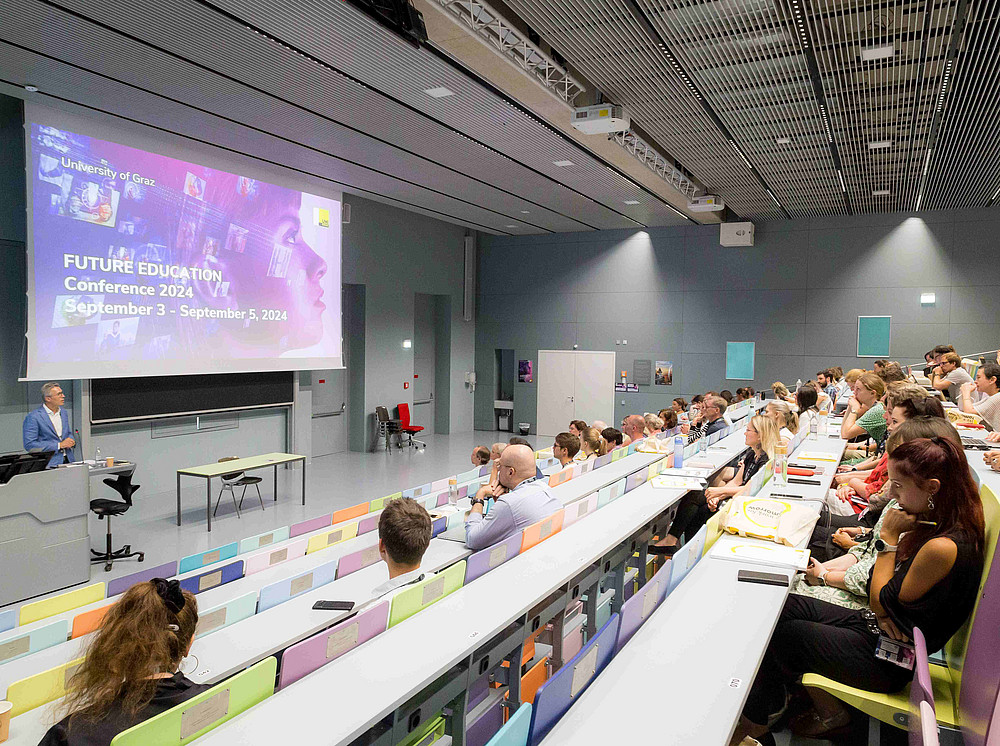This interdisciplinary conference offers an inspiring framework for the presentation and discussion of current scientific work on the topics of education, learning, development and teaching. The focus of the conference is on interdisciplinary work that contributes to shaping the education of the future in such a way that learners can master current and future challenges well. The aim is to stimulate a social discourse on what a successful education of the future could look like.
Call for Papers extended: FUTURE EDUCATION Conference 2026
Interdisciplinary Research Perspectives
01.09.2026 - 03.09.2026
The FEC 2026 invites researchers and practitioners to submit innovative contributions from the fields of education, learning, development and teaching.
The interdisciplinary conference offers an inspiring framework for presenting and discussing current scientific work and jointly developing new approaches for the education of the future. Submissions must be made in English and are open until 22 February 2026 - via ConfTool.
Important dates
- 10 November 2025: Start of submissions
- 22 February 2026: Submission deadline
- 1 April 2026: Start of registration
- 30 April 2026: Results of the review will be announced
- 1 June 2026: Registration deadline for lecturers
- 1 July 2026: Publication of the programme
- 10 August 2026: Registration deadline
- 1-3 September 2026: FUTURE EDUCATION Conference 2026: Interdisciplinary Research Perspectives
Symposium
Symposia offer the opportunity to present different research perspectives on a specific topic from different disciplinary angles. Each symposium comprises three speakers, one chair and one discussant. A 90-minute session is planned for each symposium, with 20 minutes of presentation time per talk and 10-15 minutes for the discussant's contribution.
Symposia must fulfil the two-country rule: Active participants (presenting author, chair and discussant) must come from at least two different countries. All active participants must have an FEC 2026 ConfTool account.
Research Lecture
A Research Lecture offers the opportunity to present and discuss current research findings in an interdisciplinary setting. Each presentation is given 20 minutes, followed by 10 minutes of discussion. The lectures are grouped thematically into 90-minute sessions with three presenters in each session.
Poster Gallery Walk
Posters offer researchers the opportunity to present their work in various visual formats. The poster session takes place as a 90-minute "Gallery Walk" and allows participants to immerse themselves in in-depth discussions about the research work presented. Posters will be presented in A0 portrait format (dimensions: 841 mm x 1189 mm).
Keynote speaker
Scientific reasoning encompasses students' ability to use evidence to understand natural phenomena, generate explanations for them, and evaluate claims. It involves forming hypotheses, designing and conducting observations or experiments, analysing data, drawing conclusions, argumentation, and revising ideas based on empirical evidence. In my talk, I will illustrate how these processes can be enabled and facilitated using educational technology such as virtual experiments (simulations) to engage in (guided) scientific inquiry practices. The reported studies show how educational technology serves to augment (rather than replace) hands-on experiments; moreover, they illustrate effective ways to support cognitive and metacognitive processes during scientific inquiry.
Learning to read depends on children's phonological skills and letter knowledge, and measures of rapid naming skill are also correlates of reading fluency. Drawing on a longitudinal study of children at high risk of reading disorders, it is proposed that oral language is the foundation of reading yet its role has typically been underplayed in models of reading development. Data are presented highlighting both the direct and indirect impact of language skills beyond phonology on children's reading outcomes. Findings are discussed within a multifactorial framework and implications for interventions to promote reading and related educational skills are considered.
Over the past two decades, research on games and learning has revealed how well-designed play can foster cognitive development, motivation, and behavioural change across education, health, and even justice systems. Yet as the world faces escalating disinformation, polarisation, and social fragmentation, the field must evolve. This talk reflects on what we have learned about how games cultivate thinking and skill - and argues that the next frontier lies in designing for shared understanding, critical discernment, and civic imagination. Games for learning must now help rebuild the very social fabric that enables learning, trust, and democracy itself.
Talent development frameworks have typically been associated with serving the most able learners in schools. However, to effectively engage in talent development requires gaining an understanding of learners' current skills and competencies and helping them to move to the next level. As we work towards making society more inclusive, an equitable talent development framework requires recognising and embracing the backgrounds of all students and creating educational environments where they all thrive. In this presentation, I will discuss psychological factors that showcase how to personalise learning experiences by addressing the unique cultural, social, and cognitive influences that shape each student's educational journey.
